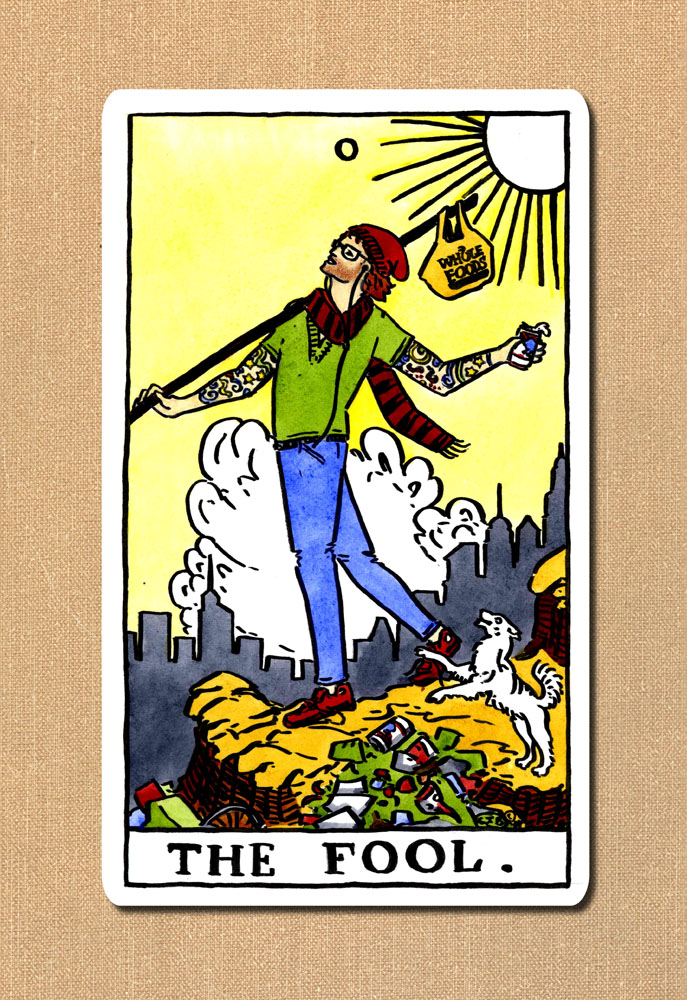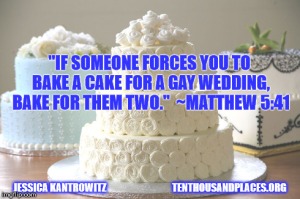If we go to the earliest moments in Christian history we have the Desert Mothers and Fathers, men and women who left all the comforts of life and went to live in the austerity of the desert. We see a similar group of Christian men and women arise several centuries later in Ireland, these monks and nuns lived on stark islands off the coast and took long voyages into the sea on small boats. The hope was to encounter the reality of human existence outside of worldly trappings. To stare into the vast loneliness of the desert from a remote cave or gaze upon the stark isolation of the changing sea from a far out promontory, and have it envelope you. To have this loneliness, this isolation, stare back into you and erode away what is there; to allow one to be purified by the revelation inherent to creation. Or as the Nietzsche quote goes "if you gaze long into an abyss, the abyss will also gaze into you".

What I want to suggest is that nihilism, deconstructionism, etc. are the new ascetic deserts of christianity. Those of us who find ourselves dwelling in them, by choice or chance, encounter a reality as stark and meaningful as the monks and nuns of old, and as perilous and deadly as the one who wanders unaware into the desert or is shipwrecked on a barely inhabitable island surrounded by the sea. It is possible for us to be swallowed up in the abyss that surrounds our perception of reality and be utterly lost or, even worse, to become a monster of deconstruction and devaluing ourselves.
We have highly romanticized ascetic life, light ascetic practice of mental prayer and eschewing material opulence percolates all about our society, but we have forgotten how dangerous it can be. The reality is that on the map of ascetic life, there be dragons. In the midst of spiritual curiosity, especially curiosity from the rigidity and stagnation inherent to organized religion, we have people wandering head long into the desert and thus wondering head long into the mental abyss waiting just outside of our perceptions of reality.

This is a good thing, this is a necessary thing, this is a thing that any one who truly wishes to enter into a dynamic and full relationship with Jesus Christ must do. If I were to say that there is one absolute requirement of every person who would dare seek a call to ordained ministry it would be engagement, fully, into this wandering wonder of the desert of perception. This is how one comes to live, to know, to exist, in the reality that individuals encounter when they enter into spaces of crisis. This is how one truly comes to differentiate themselves from the situation in which they are presented, and thus are able to find and be found by God in it. This is the kenosis that allows an individual to look beyond the conceptions of our fallen society and encounter the true being God created them to be. This is the process that brings about the chaos that allows that creation to more fully encounter God and become what God intends.
The problem is that desert life is hard. Heading out into the wide open sea in just a little coracle is a leap of faith that is simply staggering. It is an ask that is by its very nature harrowing. It is an ask to enter fully into Jesus' descent into hell, and in the midst of hell surety of the resurrection, knowledge that God has not abandoned us, belief that God exists at all, becomes increasingly difficult. That is why the true hermit in asceticism is the rarest of creatures, because ascetics know the danger of such isolation. They know that what is essential to life can also end life. That too much oxygen will fuel a fire that will destroy everything. That too much water will dilute the means of transporting essential nutrients throughout the body. They know that too much time in the desert, too much time staring into the endless waves, will utterly destroy the watcher.
That is why they do this only in community. That is why they come out of the desert and into the refectory, that is why they steer their coracles back to the land and shepherds, brewers, and cheese makers. That is why even the most austere of orders take time to celebrate and fully encounter joy. I am not sure if one can ever truly leave the desert once one has been there. A few days of complete loneliness on the high seas cannot be readily forgotten. I think trying to avoid that space and move beyond it is simply leaving a land mine in one's consciousness that will explode at an inopportune moment.

The only resolution I know is to find others who have encountered the desert and make times of joy together. Gathering coracles together, even far from land, to share stories and become community, even if it is to soon drift back out into the untamed seas, is the requisite reality that allows life in the midst of full inquiry possible. Once one has realized that the truly solid rocks on which one can build one's life lay outside the ability of our minds to conceptualize one cannot go back and take as foundational a premise our gut will doubt. We have to figure out how to dance along the routes that our mind cannot quite perceive and live our lives one dance step of faith after another.
What one realizes, in the end, is that one is always getting back to that beginning point, the naught point, the chaos beginning point, the waiting for the breathe of God to create part. The reality is that at the beginning of Genesis God is not creating out of nothing, this is a modern extrapolation contrary to the text. God creates over a void, yes, but a void filled with the broken and meaningless chaos of a world ravaged innumerable times into nothingness. At the other end of the Bible, at revelation, we have a series of events that ravage the world again innumerable times into the same void... and it is only then that a new heaven and new earth become manifest.
This makes us fools for Christ's sake where others are prudent. It makes us weak where others are strong. While others can be distinguished in faith we find ourselves, again and again, without honor. we exist in the place of the fool, in that naught space that steps foolhardy into the new creation with a beast of destruction both our ever present companion but also forever nipping at our derriere. Our hope and solace is found by being able to not only look back, at the chaos behind us, not only ahead of us, at the looming precipice, but up at the guiding sun that we trust will make some sense of the entire ordeal.
 |
| amazing rendition of the fool tarot card from www.nydwyngreendragon.com |









